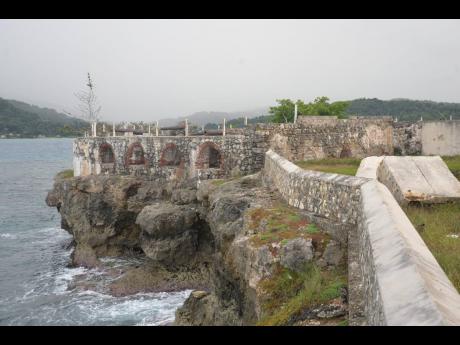Linking community tourism with education
SEE Preserving History Through Education
Recently, increased focus has been placed on incorporating knowledge of local communities in the dissemination of our tourism product to visitors. I understood the true importance of this principle after I took part in a tour of Fort Charlotte conducted by Rusea’s head girl Hannah Richards.
Richards highlighted the wider geographical, historical and cultural features of the Lucea community. This emphasised the importance of exploring knowledge of local communities in order to produce a valuable experience for visitors.
My experience made me realise the incredible potential that exists within our schools across the island. To produce a successfully marketable tourism product, one must consider the human and cultural capital in respective communities.
This philosophy underpins my vision for sustainable tourism; a belief that is represented in the 2030 Agenda for Sustainable Development. Goal 8 of the Sustainable Development Goals (SDGs) aims to “Promote sustained, inclusive and sustainable economic growth, full and productive employment and decentwork for all.” Target 8.9 specifically states that, “By 2030, (stakeholders should) devise and implement policies to promote sustainable tourism that creates jobs and promotes local culture and products.”
Sustainable tourism can be achieved by incorporating community tourism in education. Community tourism is the sharing of natural resources of a local community with visitors for the benefit of the local community. It takes into consideration the conservation of the natural environment and the community’s way of life.
UNIQUE STORIES
It can be argued that this understanding can be enhanced by the preservation of the culture of communities. Instead of merely marketing individual sites, a more comprehensive approach should be taken that includes history, cuisine, music or even dance of each community, as they all have unique stories to tell.
Even students will benefit from this approach, as they would have the opportunity to share their talent with visitors interested in acquiring a piece Jamaica’s culture. For example, I was impressed with the Tarrant High School prefecture, who performed a play teaching interested visitors about the lifestyle of the local community.
This should be expanded as it is a perfect example of community tourism married to education. Subsequently, this would give newer institutions located in such communities the opportunity to earn from their displays of talent.
Hence, community tourism represents a sustainable medium for students to be involved in the advancement of Jamaica’s tourism product, thereby providing them the chance to participate in decent work and community development.
My prevailing philosophy on education is that an interdisciplinary approach should be taken when teaching our students. This programme would successfully integrate skills from numerous subjects, including history, tourism, entrepreneurship, among others.
Not only will the youth benefit from additional employment, but Jamaica would be making a significant step in achieving sustainable communities, which is Goal 11 of the SDGs. Particularly, SDG Target 11.4 aims to, “strengthen efforts to protect and safeguard the world’s cultural and natural heritage.” To understand and preserve your past is to plot a successful future. Let us take a bold step to achieve a viable vision of a sustainable and successful Jamaica.
David Salmon is the outgoing deputy head boy of Wolmer’s Boys’ School and co-founder of the New Jamaica Foundation, a think tank and outreach organisation. To send feedback, he may be contacted at executive.director@newjamaicafoundation.org.

